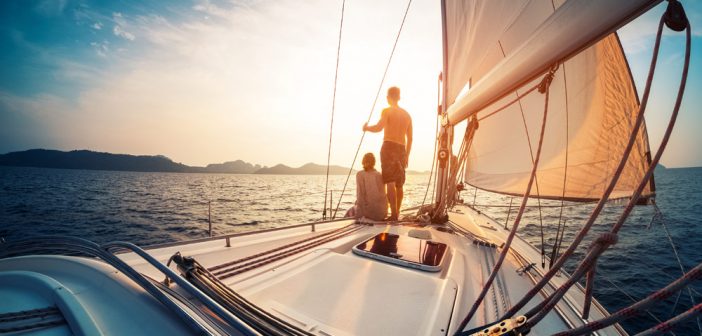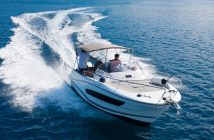Boating is often one of the outdoor activities that families and friends look forward to. It is a great way to spend time together and slow down the pace of life.
Although boating is already enjoyable on its own, there are more ways on how you can improve the experience. Even more important though is everyone’s safety. It should be your priority to keep everyone safe, including both the kids and adults. Whether you are at the dock or cruising around a bay or lake, boating should not just be comfortable but safe as well.
Here are essential tips to keep in mind when you plan to have a stress-free day on the water with your family and friends:
1. Teach kids how to swim.
This preventative measure will help them stay safe. Of course, even the best swimmers can face fatal accidents if they are not careful. However, it is a guarantee that kids who know how to swim have better chances of survival than those who do not know how to.
2. Wear a life jacket.
Insist that everyone wear a life jacket, even if they know how to swim. The jackets should be the proper fit for the wearer and should always be US Coast Guard (USCG) approved. According to the USCG, about 90% of drowning could have been saved if they wore a personal flotation device (PFD).
3. Prepare your boat.
Ensure that the boat is operating properly. Regular checks are necessary before you head out onto the water. It also helps to have a friend or relative know about your float plan, which should include your destination and time of return.
Make sure the fuel levels are appropriate for your trip. You may want to add more fuel if needed. It is best to check the engine a day before the actual trip. The method of checking will depend on the type of engine you have. For instance, if your boat has an outboard engine, you may need to check the fuel system to make sure there are no gas leaks.
Check that the lights are functioning and ensure there are no electrical issues. Before you head out, test communication devices first.
4. Avoid alcohol.
For some people, getting together with their friends includes having a drink or two. Alcohol, unfortunately, is one of the leading factors in fatal accidents involving boats. In 2013, 16% of recreational boating accidents resulted in death because people were drinking alcohol while on the water. Ensure that this doesn’t happen by avoiding alcohol if you are going to be operating the boat.
5. Take a boating course.
A boating safety course is not just for beginners in boating. Even if you have prior experience, you can still benefit from this course. Statistics showed that 87% of boating deaths could have been prevented if the operator received proper or better training.
An added reason why you may want to complete the course is that it allows you to qualify for reduced rates on insurance.
6. Stay safe when boating with a baby.
It may not be advised to take your newborn with you to go boating. However, some people may not have a choice. When boating with a baby, safety should be your priority, as with any other occasion.
Proper precautions should be taken, including using a life jacket appropriate for the infant. It should be less than 30 lbs. so the baby will remain comfortable despite needing to wear the jacket. Another important thing is that you should never cruise when your baby is strapped into a device that does not float, such as a car seat.
7. Be aware of nautical rules.
Just like when driving a car, there are navigational rules when boating. For instance, the proper protocol if you meet another boat. You should know what to do in this situation to prevent costly damage, injuries, or even deaths. Threats of collision can take place while you are boating in the vicinity of other boaters. You should know when to slow down or steer away.
Another part of the navigation rules is that you should maintain a safe speed while operating the boat. If possible, have someone with you to serve as a lookout as you operate the boat.
8. Know about carbon monoxide.
Boat engines generate carbon monoxide. This gas is colorless and odorless but it can kill you in just a few minutes. Every year, boaters die because of improper ventilation in the cabin. Boating equipment, when poorly maintained, can also cause carbon monoxide poisoning. You have to be careful at all times when you are inside the cabin of the boat.
You should also know that you do not need to be inside the boat to be exposed to carbon monoxide. Exposure to CO can happen on swim platforms and other areas of the boat where the gas can accumulate.
Some of the symptoms to watch out for are nausea, weakness, irritated eyes, and headache. You can also use carbon monoxide detectors. You may also want to tell people to stay away from the swim platform when the generators or engine is running.
9. Stay in touch.
When on the boat, cellphone coverage can become erratic. Your phone can get wet or you may not have enough charge. To keep in touch, a VHF marine radio may be your best choice. This device will allow you to communicate with rescuers. This way, if an accident does happen to occur, you can guide the rescuers to your location.
The marine radio does not have to be expensive. You can even get several features for a $100 radio, including weather updates. You can even connect it to your boat’s GPS to improve geographic accuracy.
Follow these boating tips so you can and your passengers will return from your trip in great shape.








